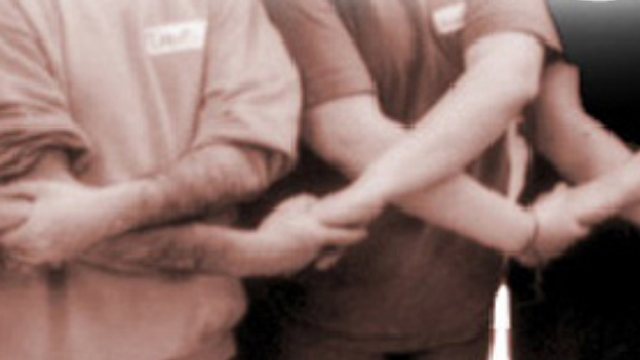
(Photos: Theatreforliving.com)
A unique partnership merges interactive theatre and medical education at the University of Alberta to help build teams, improve communication and promote wellness.
In 2012 Verna Yiu, then interim dean of the U of A's Faculty of Medicine & Dentistry, and Pamela Brett-MacLean, associate professor in the Department of Psychiatry and director of Arts & Humanities in Health & Medicine (AHHM), wanted to introduce theatre to the faculty to see if people would benefit from the active way of learning. The pair had done some early work in audience interactive theatre with the MD program and wanted to expand it.
Brett-MacLean reached out to theatre director David Diamond, BFA '75. At first, the experience was as foreign to Diamond as it was to the participants.
"Working at the Faculty of Medicine & Dentistry is unlike any of the other work I do. First of all, the faculty is huge," said Diamond. "I normally work with people for six to eight hours a day. That's impossible here. People are very busy. If I get a group of people for two hours, that's a lot of time for them."
Diamond facilitated the first theatre workshop in 2012, and he has been coming to the U of A twice a year ever since. Diamond says that over the years people have started to recognize the value of the experience and they are able to run longer sessions. Despite their initial hesitation, he says that faculty members and learners enjoy the workshops.
"This work is very outside the box for this community. They believe it's all 'touchy-feely' but it's really quite grounded. Very quickly people realize they are having fun and it's deeply insightful," said Diamond.
At the core of his work is a strong belief that every system is a living organism. Communities are living organisms made up of people, and the FoMD is a complex organism made up of many parts.
Diamond views the workshops as humanizing experiences. He says that the more mechanized things become, the more difficult human interaction can be.
"We want to bring people back to the art of practising medicine, not just the mechanics of medicine," said Diamond. "Part of the artistry is the technical skills, but the other part is the human relationships. If we lose that we are not practising good medicine, or living in a good learning environment for medicine."
Brett-MacLean believes the sessions can help people realize they are not alone in what they are going through. She says that realization creates an understanding between people that is more generous.
"A lot of us think more with our heads, rather than having a broader appreciation of what is going on for everybody," said Brett-MacLean. "Theatre is about human relationships at its very core. It is the perfect avenue to explore issues like physician burnout, team dynamics and wellness."
Diamond is thankful for his unique role at the Faculty of Medicine & Dentistry and says that being the visiting theatre director is a privilege.
"This kind of partnership is rare, and it's a gutsy thing to do."
Arts and Humanities have big impact on MD students
The AHHM program is a big reason why second-year MD student Genia (Eugene) Kwon chose the U of A.
"When I entered medicine I was conflicted on what career path to choose. I wanted to be an actor and a doctor, said Kwon. "I didn't want to lose the theatre part of my life. I think that the arts and humanities are so important in medicine."
She believes theatre complements medicine because the goal of theatre is to focus on the person in front of you, reacting genuinely and responding to the person and their needs. She feel that these skills will be useful in her medical career.
Third-year MD student Aulora Oleynick echoes the important of arts and humanities in medical education.
"In health care we need to be able to make those connections with our patients. They are the reason we are there. The arts and storytelling can be a big part of that," said Oleynick.
Both students enjoyed Diamond's workshop and look forward to working with him again throughout their time at the FoMD.
One aspect of the workshop that Oleynick found particularly powerful was working through scenes and then unpacking what each of the characters was thinking.
"I recognized that everyone was coming in with different experiences, intentions and personalities. I think it's important to recognize that in our day-to-day interaction as well," she said. "A lot of times we just see interactions at face value, but if we delve deeper we can get a better picture of what's really going on and why."
Kwon also notes that when they broke things down, a lot of the students' issues were similar, and it was valuable to recognize they aren't alone.
The students were pleasantly surprised by how their peers engaged in the workshop, which Kwon credits to Diamond.
"He really warmed people up and it was a very safe environment where people were connecting, felt comfortable to express themselves and were trusting of others."